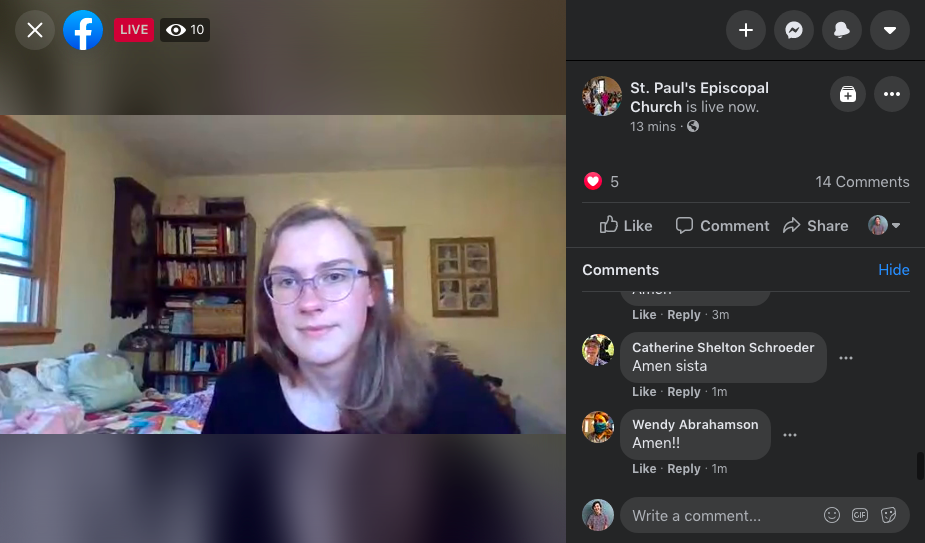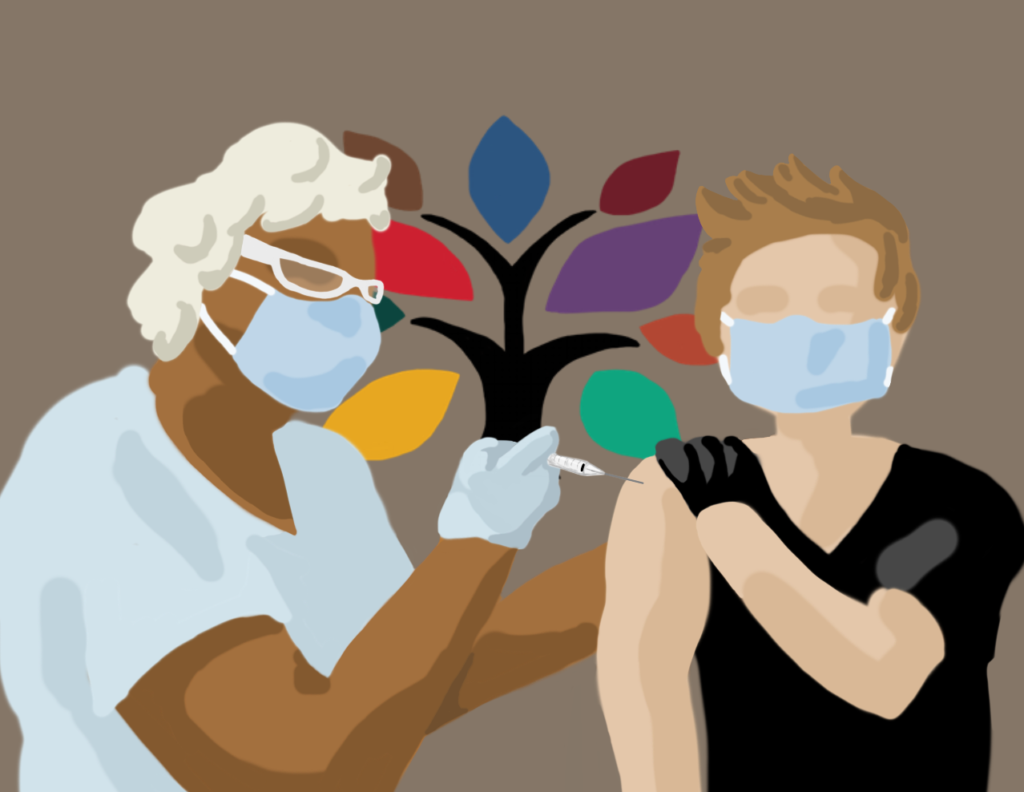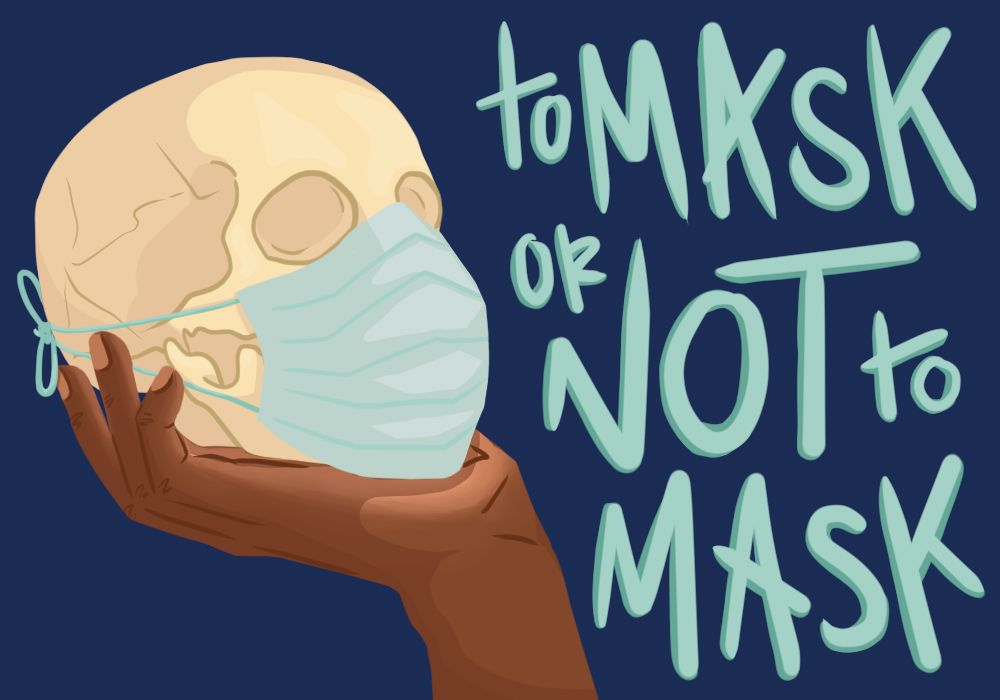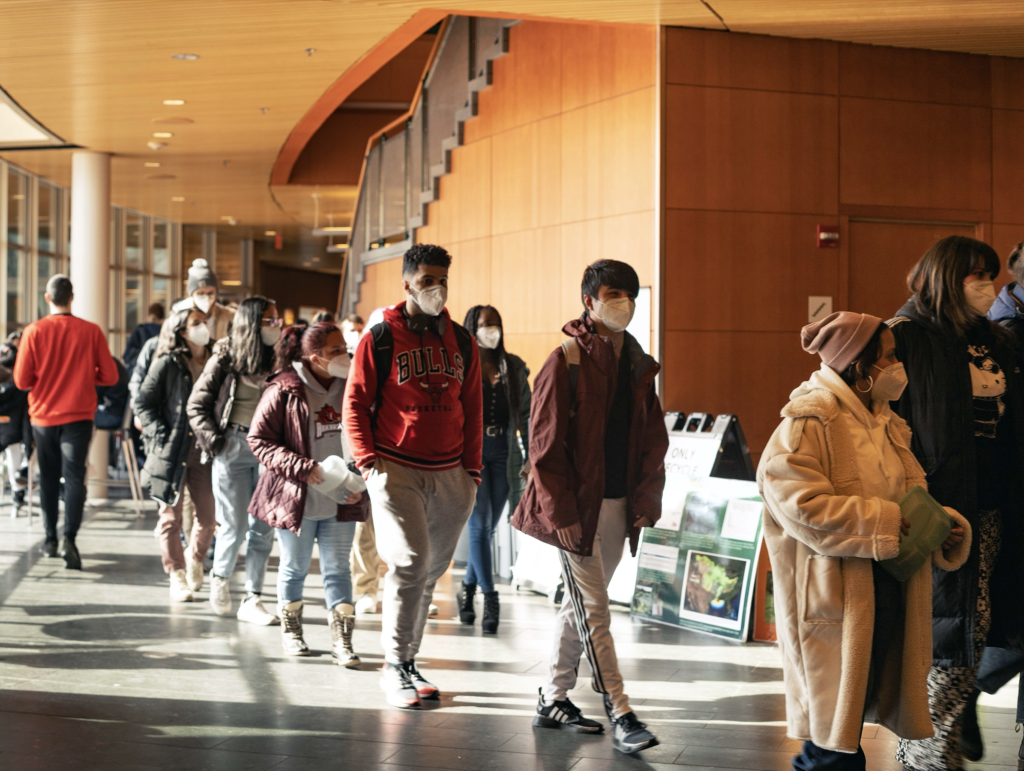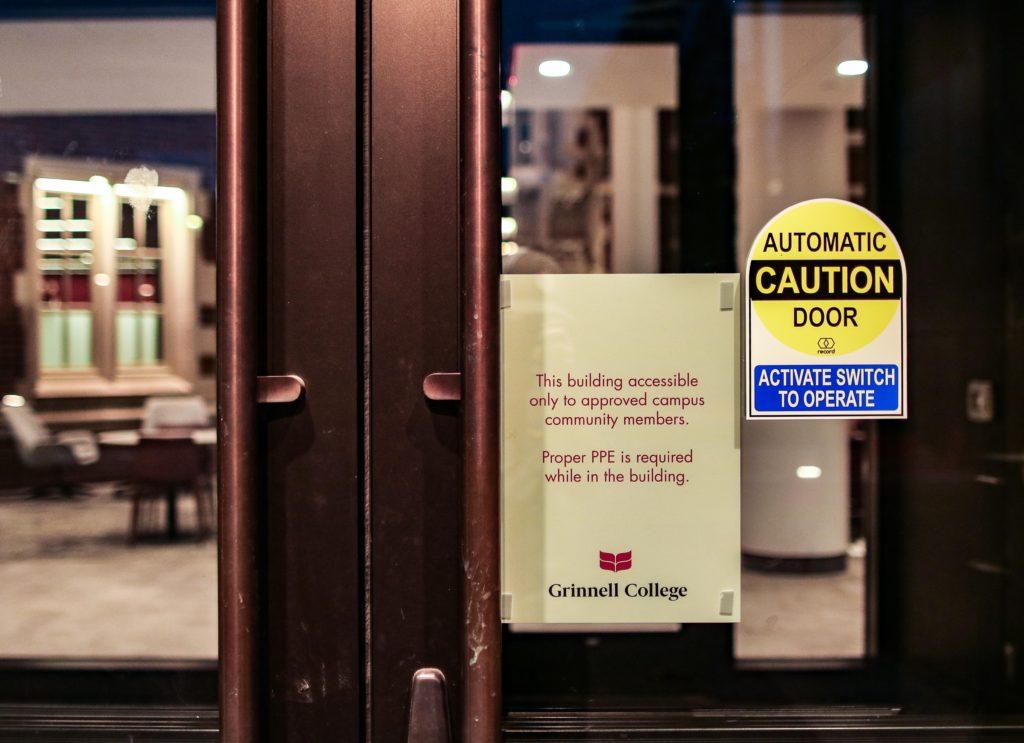The Christian season of Lent, which begins on Ash Wednesday and culminates in Easter Sunday, is observed by Christians through personal sacrifice of items or habits known as “luxuries.” For Christians in Grinnell, the act of physically attending church this Holy Week has become one such luxury; the observance of social distancing to prevent community spread of the COVID-19 pandemic has forced services online.
Many churches in Grinnell are using Facebook Live as a platform for streaming virtual services. At St. Paul’s Episcopal Church, Reverend Wendy Abrahamson has been leading daily morning prayer on Facebook Live in addition to the weekly Sunday service.
“While everything is virtual now, I don’t like that word,” said Abrahamson. “In what I’ve experienced, there’s nothing virtual about it. It’s still pretty powerful.”
Rev. Abrahamson, one of St. Paul’s deacons and an organist are the only people in the building come Sunday morning. The congregation, who last gathered for in-person service on Mar. 15, follow along in front of screens in their own homes. Some parishioners also still participate by doing readings or leading an evening prayer service, such as Ailsa Schmidt ’22.
“It feels very strange to say things aloud in response when you’re just saying it to a screen,” said Schmidt, who has attended St. Paul’s since she first moved to Grinnell as a first year.
The move online has come with a steep learning curve as churches figure out how to navigate new platforms and the occasional technical difficulties that have interrupted service. Reliance on online services has also presented difficulties for churchgoers unfamiliar with the technology being used.
“I think it’s safe to say we’re all in a bit of a state of grief right now, certainly for those who are sick and who have died, but everybody’s lives have been dramatically upended,” said Abrahamson. “I think a lot of people are finding the services helpful in that they’re not alone. They can join with others who are feeling the same way.”
Grinnell United Methodist Church (GUMC) has gone from two in-person services a week to a single service live-streamed on Facebook and YouTube. Attendance has barely dipped, and monetary offerings have actually increased, said Pastor Dave Crow.
“We were all bracing for the Grinnell version of the Great Depression here until we had everybody back. … Usually when people are out of town, the gifts go out of town with them,” said Crow. “To our amazement, folks have been extremely thoughtful, generous and conscientious.”
Taylor Gaskins ’20 leads the Christian worship groups, Women’s Bible Study and Black Faith at the College. Gaskins attends Prairie Lakes Church in Grinnell but has been more involved with her Baptist church at home in Washington D.C. since classes moved online.
Gaskins said she has appreciated being able to remain active with her faith through online meetings with Women’s Bible Study and Black Faith but misses the in-person connection so fundamental to celebrating Easter.
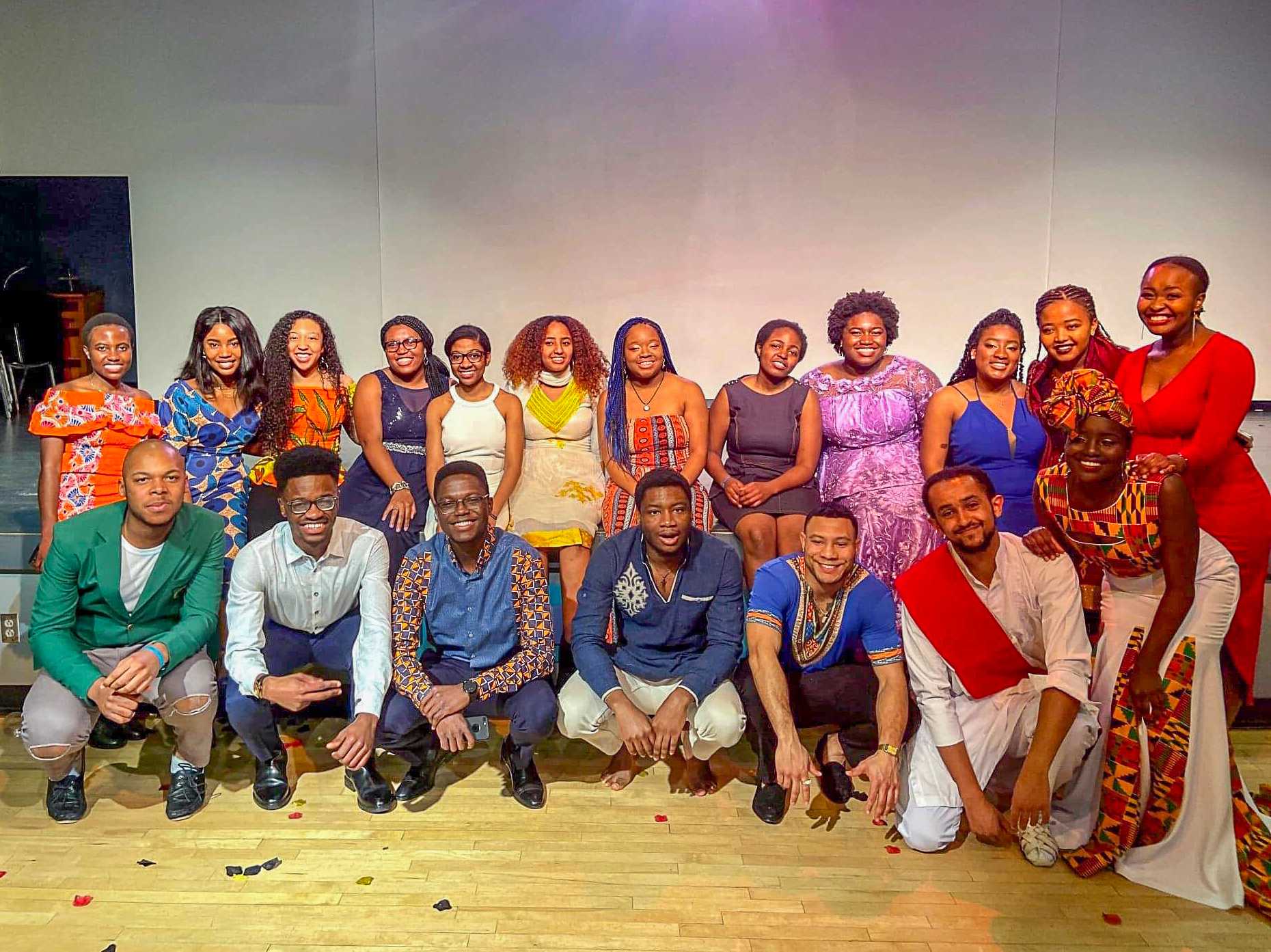
“It’s very hard, but what I’m realizing at the same time is that my faith is my own, and even if I’m not with people sometimes I just need to be by myself,” said Gaskins. “The church is not just a building; the church of God is the people. … Even if you’re not at church going through the motions of the service in the same way, you can still have that relationship by representing Christ in your daily life.”
The congregations of both St. Paul’s and GUMC have gotten creative in the ways they keep in touch since losing the ability to gather and communicate in person. Parishioners have organized private Facebook groups from which they coordinate online movie and game nights and share updates of what their families have been doing in isolation.
Some at GUMC opted for more low-tech methods of staying connected, such as cards, phone calls and even flocks of traveling plastic flamingos. The flamingos have been passed around by parishioners to each other’s yards, “reminding folks they might be out of sight but not out of mind,” said Crow.
One challenge that has been particularly pertinent in the planning of Easter Sunday and the rest of Holy Week has been finding potential alternatives for the Christian sacrament of Communion, a service at which bread and wine are consecrated and shared.
“Our understanding of Communion makes it a communal event, and the body gathers in the breaking of the bread and the sharing of the cup in the presence of Christ,” said Crow. “How do you do that through a screen?”
Decisions for proceeding with Communion vary depending on denomination and diocese structure. At St. Paul’s, Abrahamson will not be serving Communion per the recommendation of the Episcopal church’s diocese and is instead leading a foot-washing ritual in its place. GUMC will continue to provide the sacrament, provided participants supply their own food and drink from home to be consecrated virtually.
“It’s an interesting time to think about trying to have an embodied, corporeal faith,” said Schmidt. “For a lot of Christians, the significance of having an embodiment of God that hung out with lepers and then was crucified and rose from the dead is … what makes Christianity Christianity. To try to celebrate that as you’re seeing people wither away from illness and living in fear of the same thing, … I guess it’s either really depressing or really hope-filling.”
















































